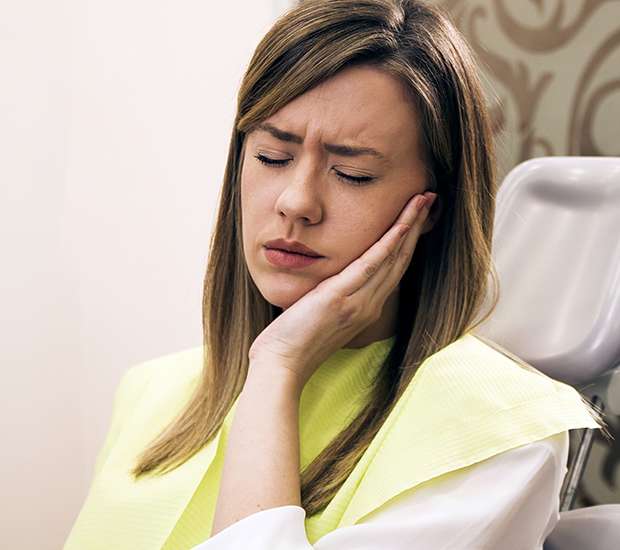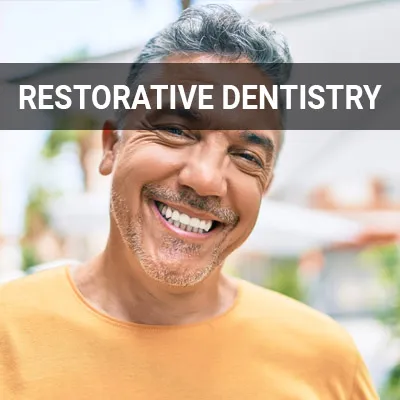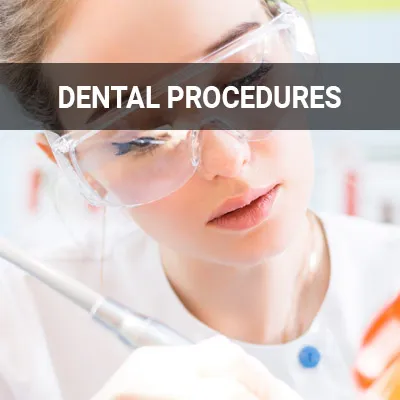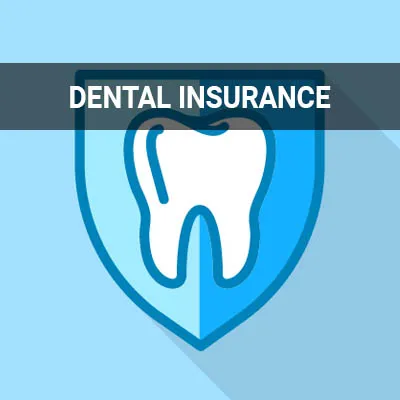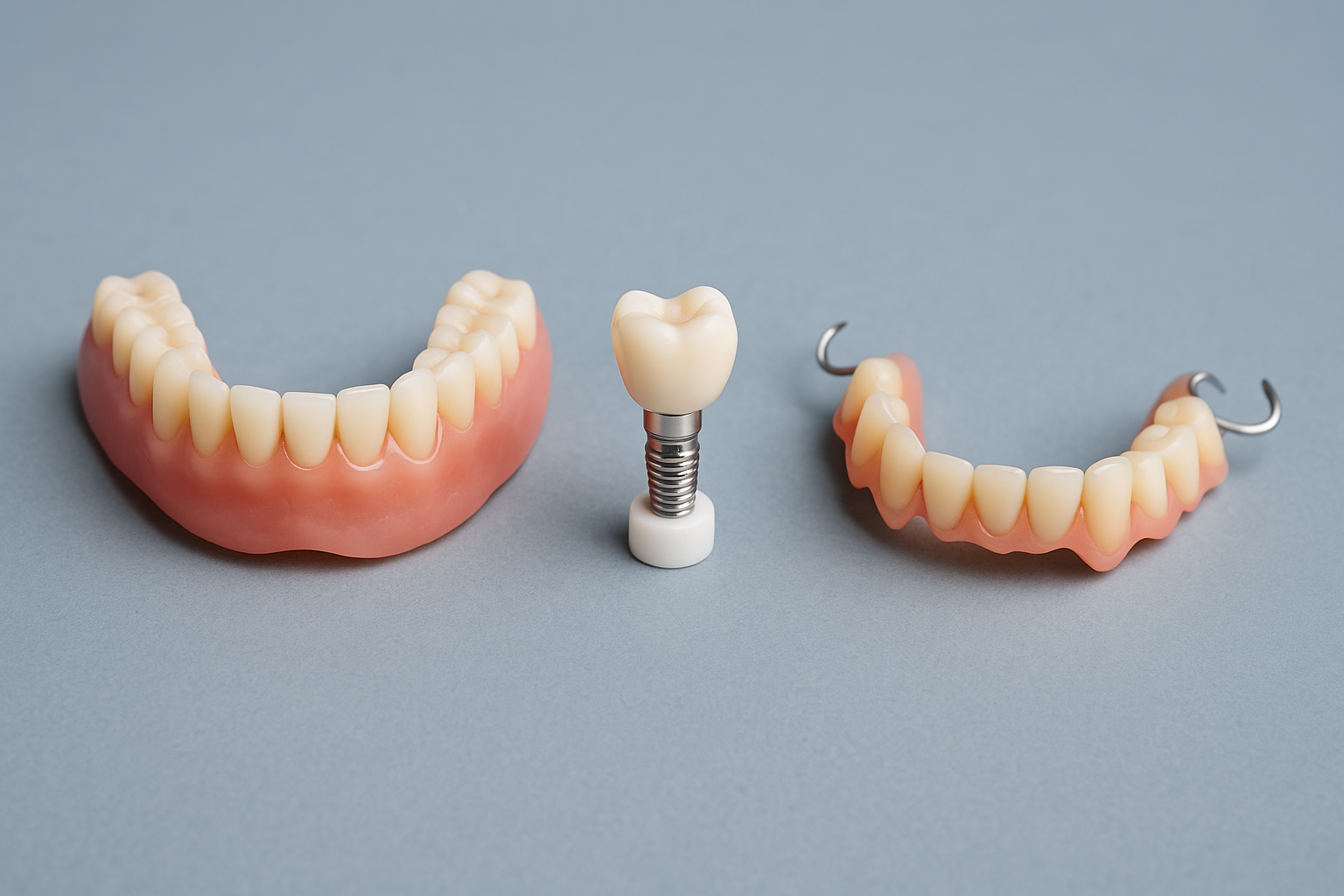TMJ Dentist Port St. Lucie, FL
A TMJ dentist can help provide relief for people with jaw discomfort or pain. Visiting a dental provider is one of the ways patients can finally get treatment for temporomandibular joint soreness or other jaw and chewing disorders. TMJ dentist treatment focuses on evaluating problems and pain from the temporomandibular joint and relieving the issues.
TMJ dentist treatment is available at St Lucie Center for Cosmetic Dentistry in Port St. Lucie and the surrounding area.People may know this common disorder by the abbreviations TMJ or TMD, which stand for the temporomandibular joint disorder. TMD can cause discomfort when chewing, swallowing, yawning, and speaking.
At our office, patients can get treatment for TMD pain. Our team takes a comprehensive approach to discover the underlying reason for jaw pain and offers many different ways to treat this disorder. Call us at (772) 242-4124 for an evaluation appointment today.
Causes of TMJ
The source of the problem with TMD is the jawbone at the temporomandibular joint. The temporal bones are in the front sides of the face, underneath the ears. These bones connect to the jaw. This pair of joints act as a hinge to allow the jawbone to open and close. In addition, several muscles support the joint that works to help the mouth function.
There are many possible reasons why patients suffer from TMD. Patients with arthritis, bruxism, high stress levels, poor posture, or misalignment of the bite may have TMD. Certain habits, like constant gum chewing, also sometimes lead to the disorder.
According to the National Institutes of Health, there may be as many as 10 million people suffering from TMD. In addition, patients with TMD may have problems with arthritis at the joint, jaw muscle pain, or misalignment. A TMJ dentist has the right knowledge and understanding to treat this disorder and relieve pain and alignment.
“There are many possible reasons why patients suffer from TMD.”
What Makes a TMJ Dentist Different
A TMJ dentist offers different treatment possibilities to help patients feel more comfortable. Each case of TMD is different, and sometimes, the dentist may use a combination of therapies to help patients ease their pain. A TMJ dentist is familiar with all types of TMD and how to treat them. Here are some common TMD treatments:
- Dental Appliances: For TMD cases that involve grinding of the teeth, the dentist may suggest a nightguard for sleeping. To utilize these guards, patients must get a custom fitting and a mold of their teeth. Individuals should wear bite guards a few hours each day or during sleep for ideal results.
- Exercises: TMJ dentists like to start with conservative treatments for TMD first. We may show patients how to relax and exercise the jaw muscles to get pain relief. The exercises work by helping stretch the muscles, increase range of motion, and reduce stiffness.
- Medications: Dentists may also prescribe medications to help with pain relief. Prescription muscle relaxers, anti-anxiety medications, analgesics, or anti-inflammatory drugs may help. Some of these medications are only for short-term use.
- Orthodontics or Alignment Treatment: If the problem results from poor bite alignment, the dentist may use orthodontic appliances to correct the jaw and bite. Sometimes, there may be a need to reshape or repair teeth to fix the bite. The dentist can adjust the way the teeth bite down to help with jaw discomfort.
“A TMJ dentist is familiar with all types of TMD and how to treat them.”
Causes of TMD
Medical professionals are not entirely sure what causes TMD. According to the Mayo Clinic, pain may be due to a combination of physical and genetic factors. Certain conditions can increase your risk of developing TMJ problems or contribute to pain:
- Arthritis: Rheumatoid arthritis and osteoarthritis can damage cartilage and expose sensitive nerves in the jaw, leading to chronic pain and inflammation of surrounding tissues.
- Jaw injury: A sudden blow or fracture can hurt the TMJ and related bones, cartilage, or disks. Misaligned or damaged parts of this sensitive area can provoke severe pain almost immediately.
- Dislocation: A dislocated jaw can have long-term effects on the tendons, cartilage, and muscles in the affected area.
- Tooth alignment issues: Some people are born with severely misaligned teeth, which can add to the discomfort that joints deal with and cause improper wear.
- Chronic grinding or clenching of teeth: Constantly clenching teeth or grinding them increases the risk of developing TMD and makes it harder to treat inflammation.
- Stress: People under a lot of stress may develop TMJ pain and inflammation if they start to grind or clench the teeth.
“According to the Mayo Clinic, pain may be due to a combination of physical and genetic factors.”
Check out what others are saying about our dental services on Yelp: TMJ Dentist in Port St. Lucie, FL
How a TMJ Dentist Can Help
There are many treatments to help with TMJ pain. Some reduce inflammation of sore tissues and strengthen the patient's jaw muscles. Other therapies promote relaxation and help to ease tense muscles and tendons.
Another way TMJ dentists provide relief is by correcting poor dental alignment. When teeth fit together correctly, TMJ muscles can work smoothly. This can also help to prevent clenching and grinding. Using special orthodontic appliances or mouth guards, it is often possible to reduce the effects of grinding the teeth at night.
“When teeth fit together properly, TMJ muscles can work smoothly.”
Questions Answered on This Page
Q. How can a dentist help with TMJ?
Q. What are the causes of TMJ?
Q. What makes a TMJ dentist different?
Q. What should I discuss with a TMJ dentist?
People Also Ask
Q. How often should someone have a dental checkup?
Q. How do lifestyle choices affect dental health?
Q. How do I use social media to find a dentist?
Q. What other preventative services are available?
Q. What is the difference between a dental checkup and a dental cleaning?
What To Discuss With a TMJ Dentist
It is important for patients to discuss their symptoms in as much detail as possible with their TMJ dentist. For example, they may want to note when their symptoms began, if they have ever undergone TMD in the past, whether their level of stress has increased recently, and what medications and supplements they take regularly. It is also significant to note if patients have frequent headaches, neck aches, or toothaches.
TMJ patients should also be prepared to answer whether their pain has been constant or intermittent, triggered by activity, or if the jaw clicks or pops when moved. In addition, patients should note if this clicking is painful or if it is difficult to open their mouth normally. With this information, a TMJ dentist can make the most informed decision about a patient's diagnosis and treatment.
“It is important for patients to discuss their symptoms in as much detail as they can with their TMJ dentist.”
Frequently Asked Questions
Q. How can I prevent TMJ?
A. There is no way to prevent this disorder completely, but some habits help relieve jaw stress and fatigue. TMJ dentist patients should pay special attention to their posture and practice better habits when working and sitting. Avoiding hard-to-chew foods, stretching regularly, and massaging the cheeks and jaws may help relieve jaw pain.
Q. How do I relieve TMJ symptoms at home?
A. Home remedies may not cure TMD, but some measures can help reduce the discomfort. For example, ice or heat may help with serious pain or swelling. Reducing stress and trying relaxation techniques may also help. For more at-home tips, see the TMJ dentist.
Q. Do weather changes make TMJ worse?
A. Some patients find that certain weather conditions make TMD pain worse. Winter weather, such as snow or ice, and the drier conditions in the air sometimes impact TMD pain levels. It is important to talk to the TMJ dentist for treatment options if the pain intensifies.
Q. Will the TMJ dentist recommend surgery?
A. While there are some surgical options for TMD pain, most patients get relief without invasive treatment. In some cases, the dentist may talk to the patient about surgery. Surgical options aim to correct physiological issues causing joint dysfunction.
Q. Can my primary care physician treat TMJ?
A. Patients with TMD pain may have more positive outcomes if they also see a TMJ dentist. A dental professional with experience treating TMD can often recommend effective treatment options for patients. The dentist partners with the patient's primary care physician to design the right treatment.
Dental Terminology
Call Us Today
Are you having trouble opening and closing your mouth or experiencing headaches? If you think you may have a TMJ disorder, call us at 772-242-4124 to schedule an evaluation right away.
Helpful Related Links
- American Dental Association (ADA). Glossary of Dental Clinical Terms. 2024
- American Academy of Cosmetic Dentistry® (AACD). Home Page. 2024
- WebMD. WebMD’s Oral Care Guide. 2024
About our business and website security
- St Lucie Center for Cosmetic Dentistry was established in 1984.
- We accept the following payment methods: American Express, Cash, Check, Discover, MasterCard, and Visa
- We serve patients from the following counties: St. Lucie County
- We serve patients from the following cities: Port St. Lucie, River Park, White City, Fort Pierce, Fort Pierce South, St Lucie West, Tradition, Palm City, Jensen Beach, and Stuart
- Norton Safe Web. View Details
- Trend Micro Site Safety Center. View Details
Back to top of TMJ Dentist
